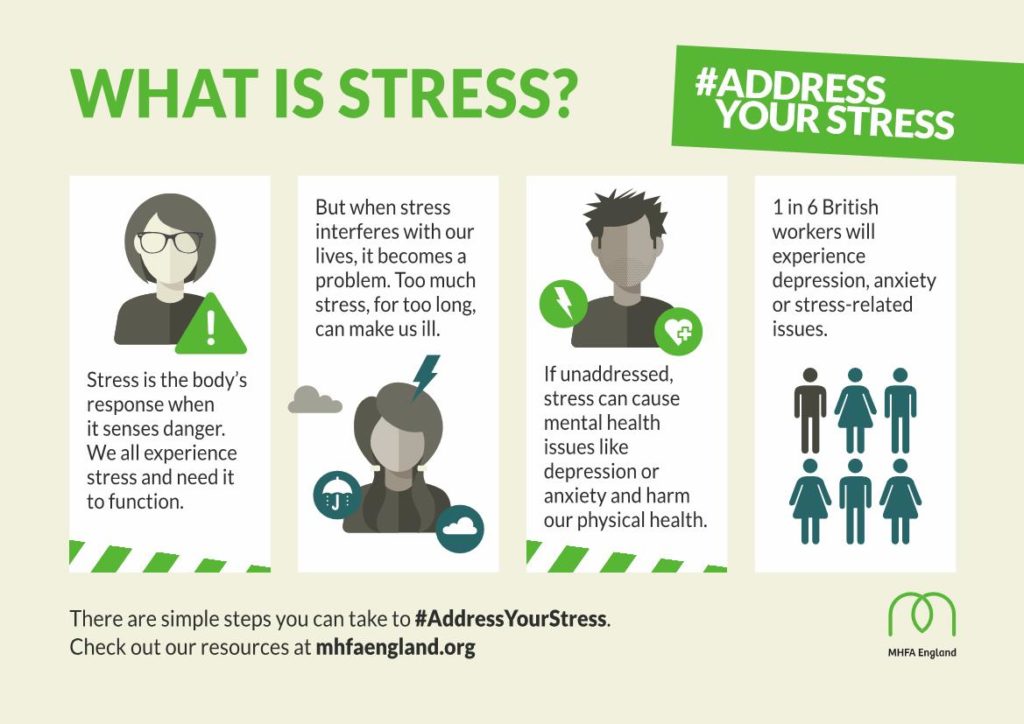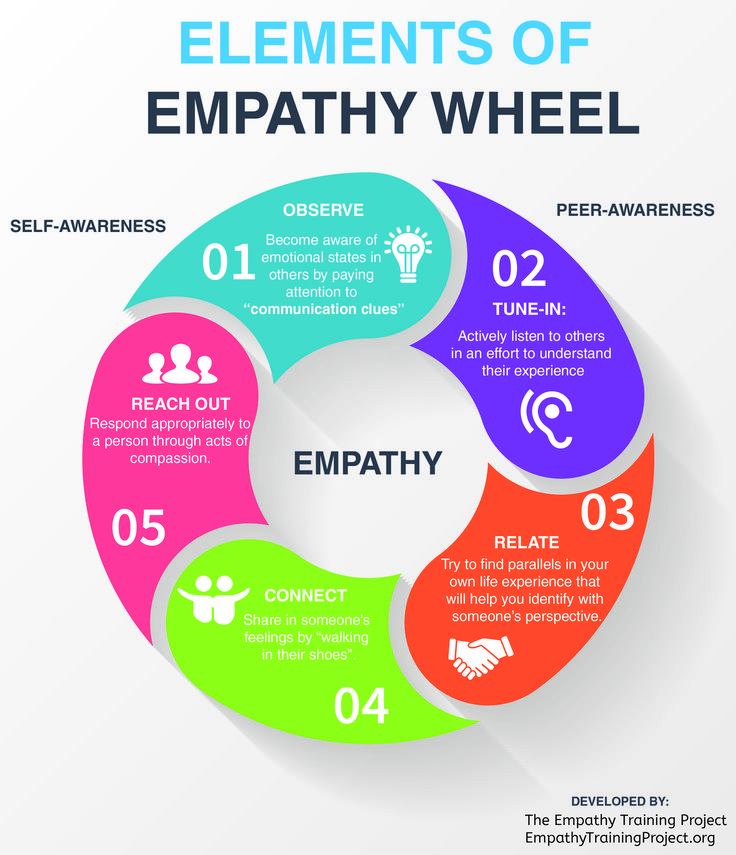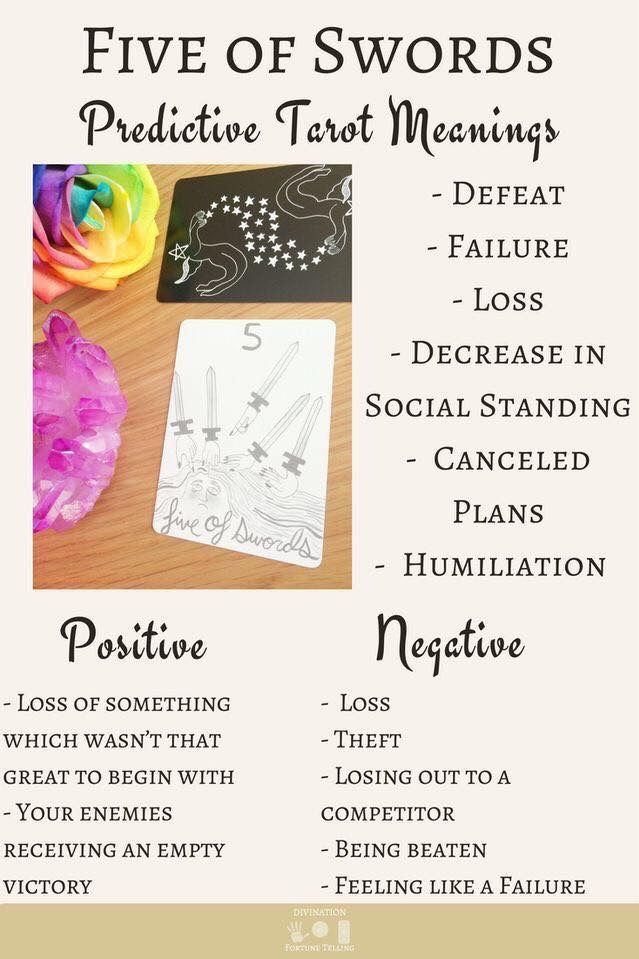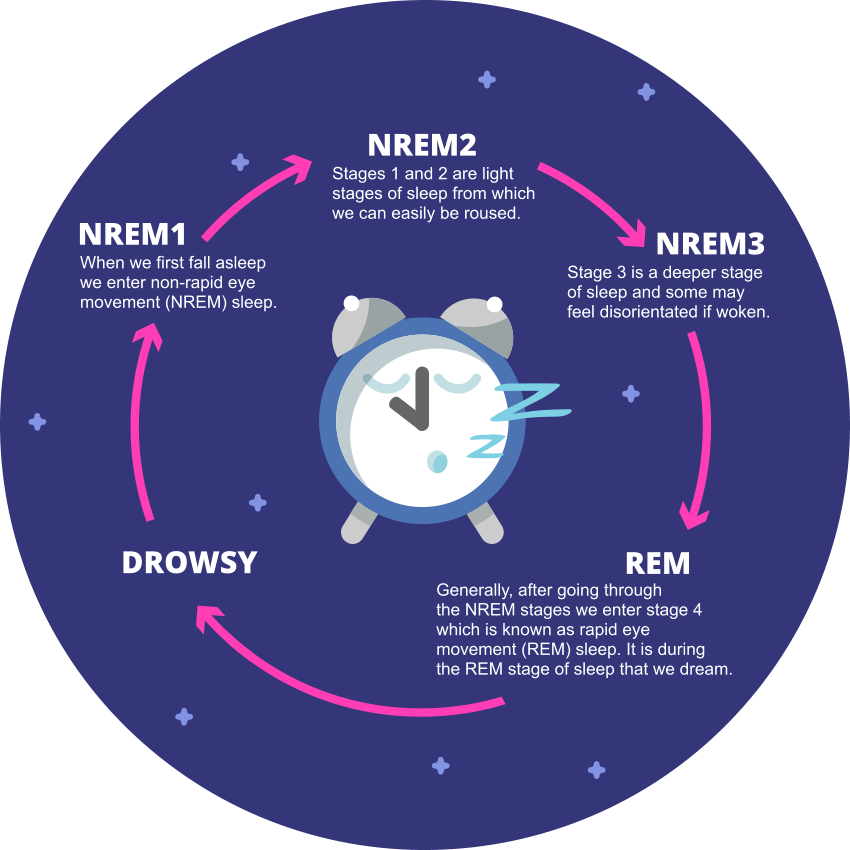Introvert at college
Introvert's Guide To College Success
Embrace Your Introversion in an Extroverted World
College is challenging at times for all students, but for introverts, it can be especially difficult. While more outgoing students can easily make friends and navigate their way through crowded classes and social events, introverts may often feel uncomfortable and left out. But it doesn't have to be that way. In this guide, we provide information to help introverts have a fulfilling college experience, while still embracing their introversion and getting the solitude they need.
What's an Introvert?
Many people think of an introvert as a shy loner who hates being around other people. However, this is not the case at all. Introverts can enjoy being with others just as much as extroverts, but they need to do it in smaller doses. This is because introverts are drained by social interactions -- and can become overstimulated by the dopamine increase in the brain associated with socializing -- while extroverts are energized by them.
As a result, people with an introverted temperament need quiet time alone in order to recharge their batteries and feel healthy and happy. In addition, people who are introverted tend to prefer having a small group of people in their lives that they have close relationships with, rather than a larger social circle.
AccreditedSchoolsOnline.org is an advertising-supported site. Featured or trusted partner programs and all school search, finder, or match results are for schools that compensate us. This compensation does not influence our school rankings, resource guides, or other editorially-independent information published on this site.
Top Online Programs
Explore programs of your interests with the high-quality standards and flexibility you need to take your career to the next level.
Am I an Introvert?
Although everyone is different, there are some common characteristics that are associated with introversion. People who are wondering whether or not they are an introvert should answer the following questions in order to figure it out.
Do you enjoy interests and hobbies that you can do on your own?
Do you feel tired after social activities?
Do you prefer working alone?
Do you dislike small talk?
Do you feel alone in crowds and find them stressful?
Do you strongly dislike being the center of attention?
Are you a good listener?
Do you prefer having a small group of close friends?
Do you prefer written communication over verbal communication?
Do you have a constant inner monologue going on in your mind?
If more than five of these statements apply to you, you likely have introvert characteristics.
College Survival Tips for Introverts
For introverts, it can be especially difficult to navigate the college experience while fulfilling their need for solitude and quiet. The following are some tips to help introverts deal with this challenge.
Set boundaries.
In some cases, introverts may have a hard time saying “no” to other people, but it's important for them to express what their boundaries are. “You should set clear boundaries with your friends when you need time alone to recharge,” said licensed professional counselor Heidi McBain. “This can be hard to do, but otherwise you're most likely going to end up feeling tired and drained.”
“You should set clear boundaries with your friends when you need time alone to recharge,” said licensed professional counselor Heidi McBain. “This can be hard to do, but otherwise you're most likely going to end up feeling tired and drained.”
Join clubs.
Joining clubs is a great way for introverts to pursue their interests and meet people who they already have something in common with. Students who don't feel comfortable speaking to people they don't know go into each conversation with something to talk about, which can make it easier to get to know their peers in the group.
Don't worry about missing out.
“You may feel pressure to be out with friends, but you should respect your need for alone time,” said Michael Klein, a clinical psychologist and organizational consultant. “Fear of missing out, or FOMO, can be especially tough for introverts because they need to miss out in order to function well—and they often do their best when alone.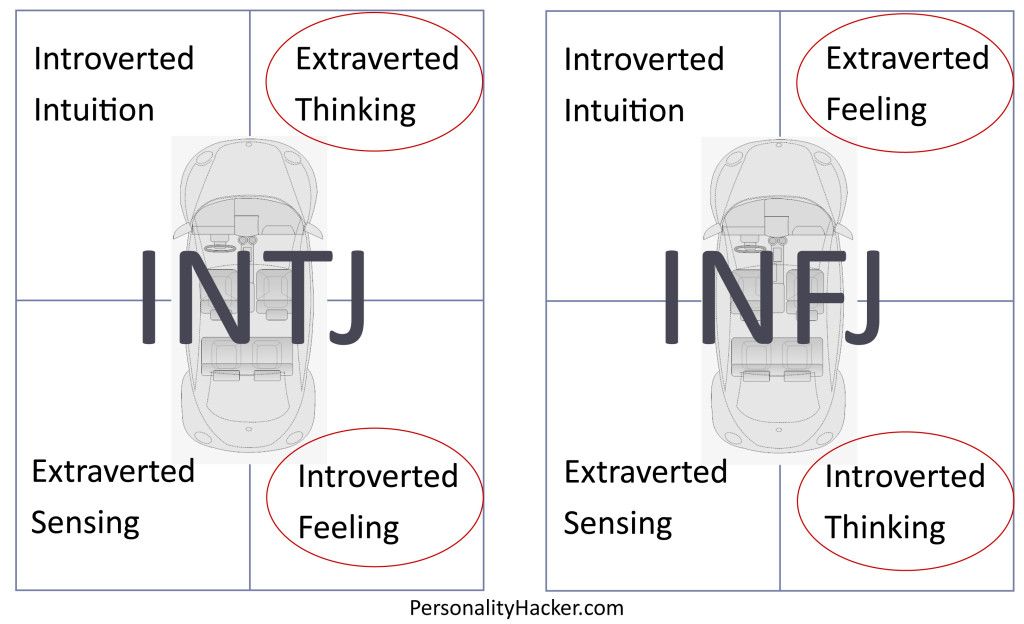 ”
”
Consider taking online classes.
The availability of online classes makes it easier for students to complete their degrees while staying within their comfort zone. Even those who do not enroll in an online program can take some online classes, which can help introverts get some respite from dealing with the in-person classroom experience.
Manage time effectively.
Since introverts regularly need to recharge their batteries, according to Scott Smith, Vice President for Mission and Student Engagement at Barry University, it's a good idea for them to always plan to have downtime ahead of time. “Given the social and experiential nature of the college environment, effective time management and proactive planning will help introverts balance the need to focus attention inward and re-energize as needed,” he said. “An introverted student needs to make time for personal care and reflection, so he or she can take care of individual needs and be energized for future activities. ”
”
Sit in the front of the classroom.
Large classes, especially the ones held in lecture halls, can make introverted students feel uncomfortable, so in order to combat this, they can sit as close to the front of the room as possible. This way, they don't have as many people coming between them and the instructor, which can make it easier to concentrate.
Seek out activities that attract extroverts.
Introverts need quiet time, but they also need to be around extroverts in order to have a healthy social life. “This may sound counterintuitive, but making sure that you are around people with extroverted energy in short bursts will be helpful to you. If you only surround yourself with people like you, you may limit your social network,” Klein said. “Make it a point to find those activities (performing, social groups) that you can at least tolerate in defined time frames. If you are a strong introvert, you will add unique value to that group. ”
”
Connect with other introverts.
Just as it's helpful for introverts to befriend extroverted people, they should also be sure to connect with introverted peers. Since many extroverts don't understand the temperament of introverts, it's important for them to seek out people who appreciate their quiet disposition.
Take advantage of technology.
“Technological advancements can be a huge resource for introverts,” said Smith. “Take advantage of communication by email or text with faculty and staff when appropriate to balance your preference for privacy, quietness, and space.”
Engage with familiar faces.
Meeting new people can be challenging for introverts, but they can begin by building connections with people they're already somewhat familiar with. Whether it's someone that sits near them in class or a friend of their roommate, striking up friendships with people they already feel comfortable around can help them build their social circle.
Avoid peak dining hall times.
During peak hours, introverts may find dining halls to be too crowded for comfort. On days they don't want to deal with being surrounded by a lot of other students, they can plan to have their meals before the rush when the dining hall first opens, or wait until the crowd has thinned when it's closer to closing time.
Remember there is nothing wrong with being introverted.
Introverts may feel like there is something wrong with them because the majority of people around them are more outgoing. However, McBain advises introverts to embrace their quiet temperament because it can be an asset. “Being introverted can be a real strength, especially when it comes to wanting to be at home alone to better focus on your work,” she said. “Where your extroverted counterparts may prefer working and socializing in groups, you might even get a lot more done in a shorter period of time by working alone.”
Expert Perspective on Introverts
Introverts are often misunderstood by their extroverted peers, and in some cases, they may not fully understand their own personality type. In order to provide clarity about introversion, we interviewed Heidi McBain, licensed professional counselor, Michael Klein, clinical psychologist and organizational consultant, and Scott Smith, Vice President for Mission and Student Engagement at Barry University.
In order to provide clarity about introversion, we interviewed Heidi McBain, licensed professional counselor, Michael Klein, clinical psychologist and organizational consultant, and Scott Smith, Vice President for Mission and Student Engagement at Barry University.
McBain:Introverts get their energy from being alone or in small groups, whereas extroverts are energized being in big groups or by being around a lot of people. There's also a new terms that being used called “ambiverts” which are people who have characteristics of both introverts and extroverts.
Klein:Introverts tend to get their supply of energy from being alone; the more introverted one is, the more likely they are to be overwhelmed by constant stimulation, lots of people around, etc. Extroverts thrive on those things and find being alone painful; the more extroverted, the more likely they are to be under stimulated.
Smith:Introversion and extroversion are one dimension of Jungian personality characteristics. The major difference between introverts and extroverts is where they focus their attention and how they re-energize themselves. Essentially, where a person falls on this continuum is a reflection of their orientation towards life in general. Introverts are focused on the inner world and prefer communicating one-on-one or in writing. In contrast, extroverts are focused on the outer world and prefer communicating verbally in groups. An introvert learns best through reflection, while an extrovert prefers experiential learning activities. Typically, an introvert will think about a situation before acting. An extrovert might act first then later think about his or her actions. Introverts are known to be private and reserved. In comparison, extroverts are thought to be outgoing and social. As a result, after a long week, an introvert may prefer going to a movie with a small group of friends for fun.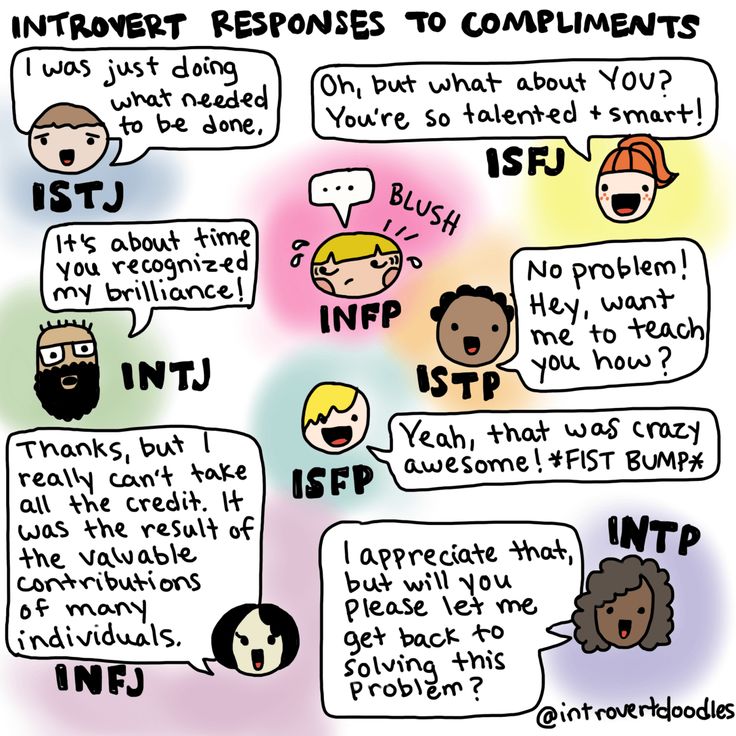 The extrovert might prefer attending a large party or concert.
The extrovert might prefer attending a large party or concert.
McBain:That they are antisocial. It's not that they don't like to socialize, it's that too much time around a lot of people can be very draining for them. So, if you're introverted, you may have to spend time explaining to others and educating them on who you really are not their perception of introverts in general.
Klein:People often think introverts have social anxiety or are shy. While there may be some overlap (if you need to be alone more, you may not develop social comfort as easily), these are two very distinct traits and behaviors. It is best to think of introversion as about where you get energy from…not about fear or a problem.
People also think introverts aren't good leaders. In fact, there is hard data to support that some of our most powerful leaders have a strong introverted nature. Spending quiet time by oneself or in small groups can lead to innovation, unique thinking, and problem-solving that doesn't happen when “groupthink” is going on. The introverted leader may not seem introverted when they are in front of a group, but some of the best public speakers are introverts. They just aren't the kind of public speaker that wants to speak for three hours, and then spend the rest of the day talking to their audience. It is especially tiring.
The introverted leader may not seem introverted when they are in front of a group, but some of the best public speakers are introverts. They just aren't the kind of public speaker that wants to speak for three hours, and then spend the rest of the day talking to their audience. It is especially tiring.
Smith:Often, the most common misconception about an introvert is that he or she is shy or not social. As well, introverts are often typecasted as quiet and uninterested, when they may just need time to reflect upon or process an issue.
McBain:Keep in mind that your introverted friends will probably want to leave big social gatherings earlier than you're ready to leave them. So try to be sensitive to their needs while also getting your own needs met. You might need to compromise in that they maybe stay out a little later than they would like and you leave a little earlier than you would like.
Klein:If you consider yourself extroverted and have a friend who you don't quite “get” or who seems to be spending a lot of time alone, do some research on introversion.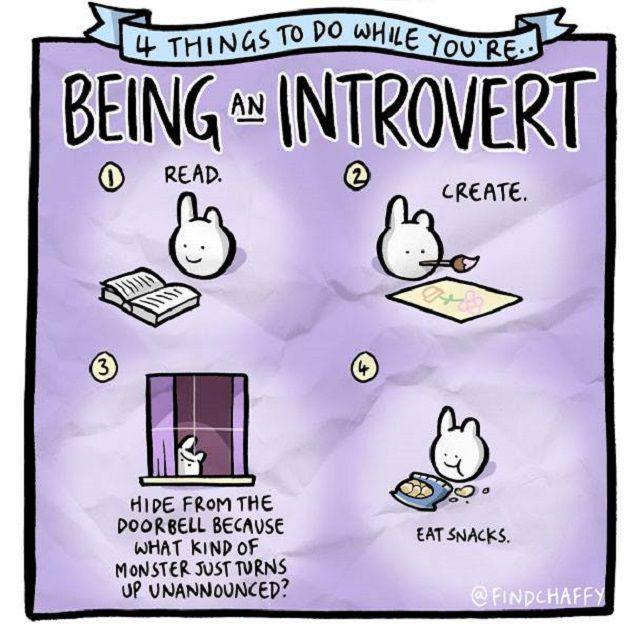 Know that it's not you they are avoiding, it's overstimulation and the need to re-energize. Extroverts also can help by giving their introverted friends “easy outs”: ask them if they are “up for going out” and give them permission to stay in or to skip a big gathering in favor of a smaller gathering. Try to bend and flex and, even though you may think nothing is better than meeting or being around lots of new people, your friends aren't wired that way and, as a result, may place less value on that than you do. Try not to take it personally.
Know that it's not you they are avoiding, it's overstimulation and the need to re-energize. Extroverts also can help by giving their introverted friends “easy outs”: ask them if they are “up for going out” and give them permission to stay in or to skip a big gathering in favor of a smaller gathering. Try to bend and flex and, even though you may think nothing is better than meeting or being around lots of new people, your friends aren't wired that way and, as a result, may place less value on that than you do. Try not to take it personally.
Smith:It is important for both extroverts and introverts to understand the various preferences of each. Again, it doesn't mean that one cannot do the other behavior or attribute. Introversion and extroversion are each preferences. For example, while an introvert may not prefer to speak in groups, it doesn't mean the introvert cannot do this. With that said, an extrovert can get to know an introvert better by spending individual quality time with this person.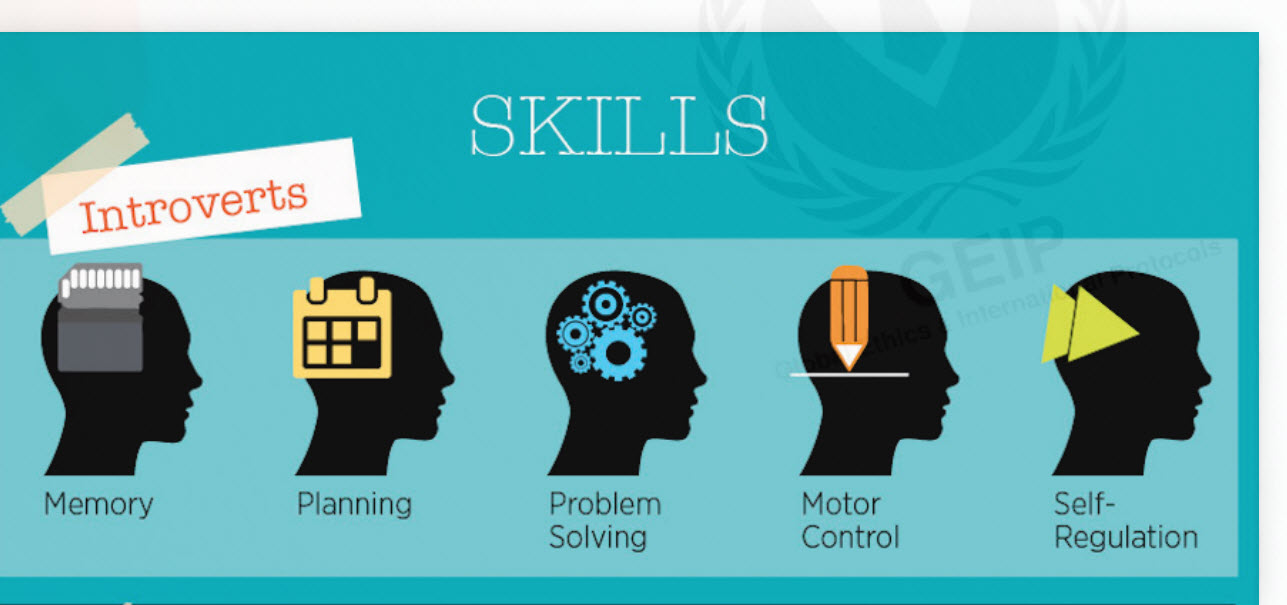 Communicate individually with an introvert and ask questions that encourage the introvert to respond with what he or she may think about a topic. Remember to give the introvert time to think before responding. Do not interject immediately after asking an introvert a question.
Communicate individually with an introvert and ask questions that encourage the introvert to respond with what he or she may think about a topic. Remember to give the introvert time to think before responding. Do not interject immediately after asking an introvert a question.
McBain:That their wants and needs are just as valid and important as their introverted counterparts. It's simply where you get your energy from in the world, being alone or being a in group of people.
Klein:That's the million dollar question. If I had to pick one piece of advice, it's try to remember that the west is very extroverted. It has been shown that kids in the west value and gravitate towards those other kids at school who are loud, entertaining, and boisterous, whereas in the east, the more studious and thoughtful, the more respect kids earn from each other. I've worked with extroverts from Asia who come to the United States and realize “they are finally home” and introverts from here who go to Asia and feel much more comfortable.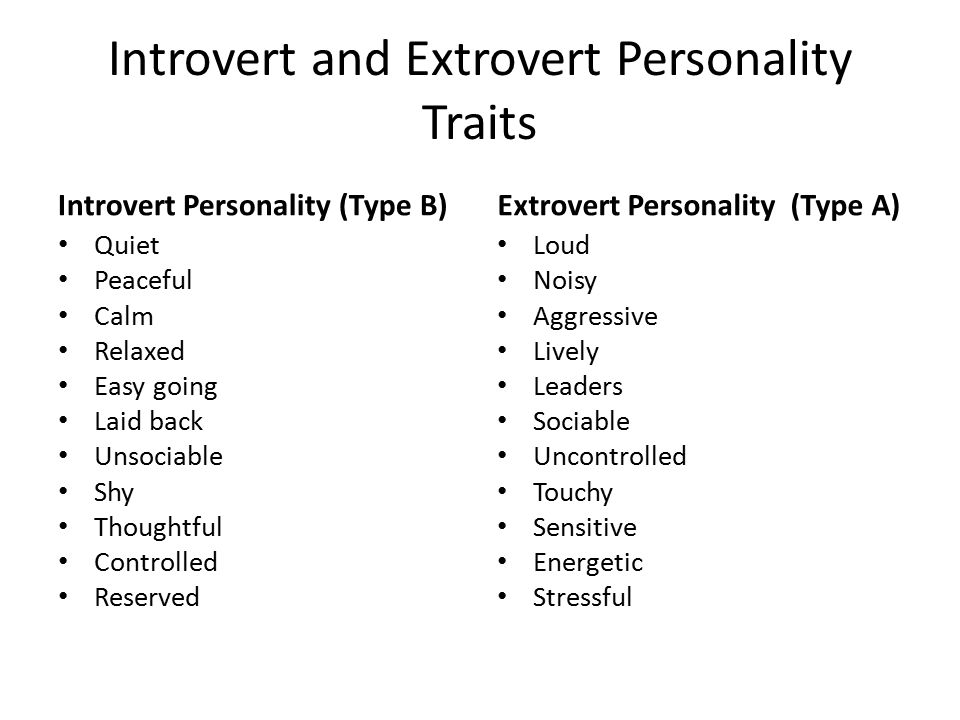 Though that is a generalization, there is an important truth within that.
Though that is a generalization, there is an important truth within that.
Smith:First and foremost, it is important for introverts to realize that the college environment is structured around many social features and often promotes experiential learning activities. As well, a majority of people identify as extroverts. To be successful, an introvert should recognize how he or she learns best and become aware of their comfort level when relating to the outside world. If possible, try to maximize learning strategies that you are comfortable with and/or prefer. An introvert should spend some time considering what activities or tasks are best for their individual learning style; thinking about the environmental conditions where he or she studies best. Similarly, find social outlets that are a good fit for your individual needs.
An Introvert's Perspective: Juhi Kore
Juhi Kore is an introvert who studied political science at the University of Tampa.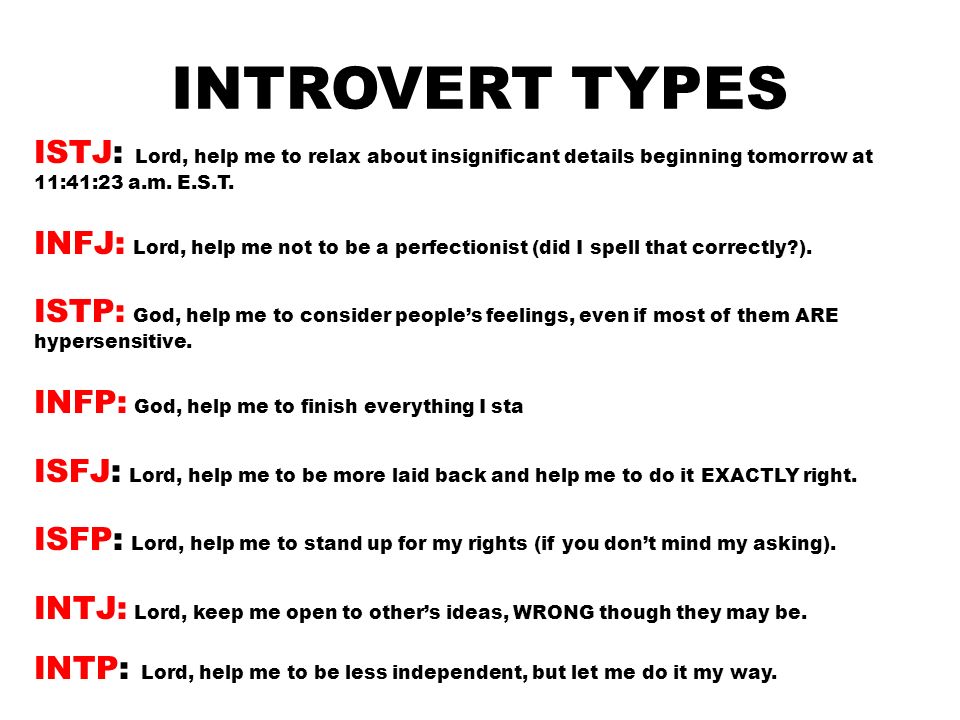 In order to provide introverted college students with advice from someone who has first-hand knowledge of what they're going through, we asked her to share her experiences below.
In order to provide introverted college students with advice from someone who has first-hand knowledge of what they're going through, we asked her to share her experiences below.
My favorite definition of the word introvert was one I learned in my leadership class: someone who gets their energy from within versus from other people. I get my energy from creating positive impact and empowering those around me. I light up when I see other people lit up with curiosity, happiness, and love. So as an introvert, whenever I am adding value to other people's lives, I feel comfortable being around them. However, I had situations, especially early on (especially with my fellow freshmen), when I felt isolated from some of my friends because I never enjoyed going out to clubs. The prevalent culture among freshmen at most American universities is that of clubbing and mine was no different. I definitely felt peer pressured into going out a couple of times, but I did not enjoy myself and finally decided that I was not going to sacrifice my happiness to make other people happy. It was hard at first for my friends to understand that at night time, I was peopled out and all I wanted to do was recharge so I could be happy around people the next day, but they finally came around.
It was hard at first for my friends to understand that at night time, I was peopled out and all I wanted to do was recharge so I could be happy around people the next day, but they finally came around.
I was not shy or quiet or almost any of the qualities more traditionally associated with introversion. Knowing that I was the most involved student on campus along with my penchant for public speaking, it was very hard for other people to entertain the idea that I could be an introvert. This would often result in me having to explain to my peers that my lack of sociability at 10 p.m. was not a reflection of how I felt about them; it was just me being drained after a long day of being around people. Another element of this was me having to cancel plans with friends because I just could not get through being around more people. And while I did feel bad about having to cancel on my friends, some days that was easier to do than to get out of bed, get dressed, and endure hours of being around other people.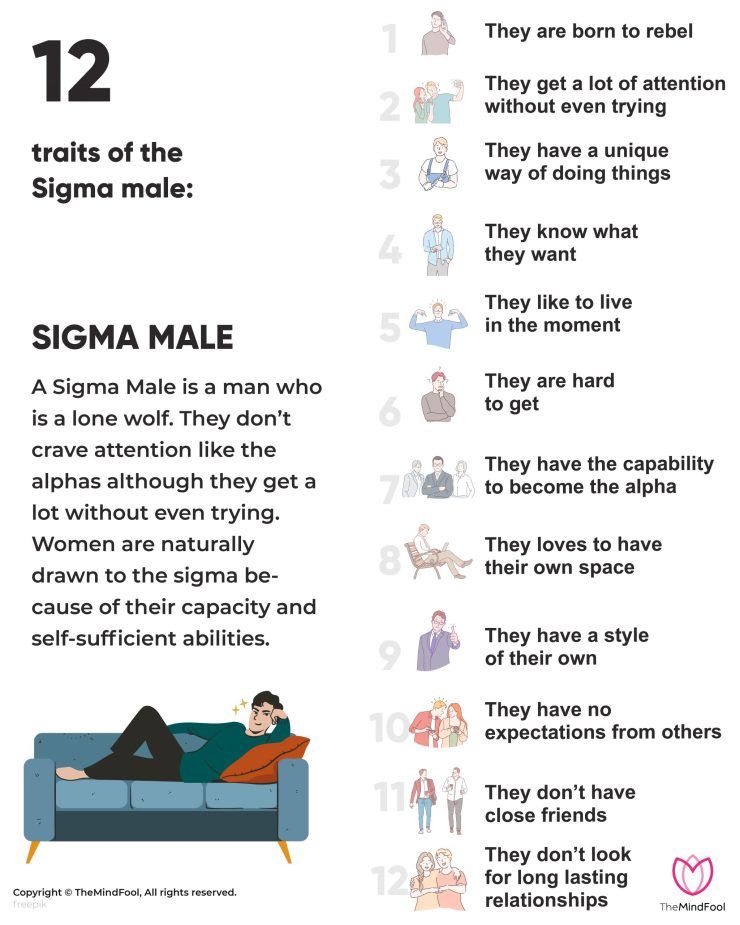
It is okay to leave. I say this because I know I needed to hear that as a student. Oftentimes, I'd find myself sticking around at events because nobody else had started leaving. It doesn't matter! If you are tired and peopled out, it is better for you to leave instead of staying and not enjoying yourself. There's also that feeling that you may be disappointing your friends or peers but trust me, your real friends would rather have you feel comfortable than not. Thankfully, I was able to do more of that as a senior but nobody, regardless of their class standing, should feel obligated to hang around people.
I understand the whole FOMO thing too but self-care is more important than any fear you may have of missing out on something crazy. If you do not put yourself first and ensure you are at your 100 percent, you cannot give anything to other people or the world. It is important for you to be full before you can give to other causes.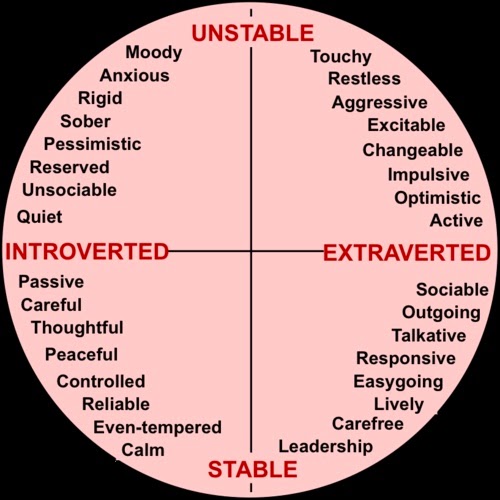
Resources for Introverted Students
Personality can affect every part of people's lives, so it's important for introverts to understand their quiet nature in order to thrive in an extroverted world. These resources are a diverse look at introversion that college students can use to succeed inside and outside of the classroom.
- 10 Things Introverts Need in a Relationship: People who are dating an introvert can use this video to better understand their partner.
- 12 Things Introverts Are Best At Doing: The strengths of introverted people are outlined in this video.
- Are You An Introvert? Signs and Traits of Introversion and How To Be Better Socially: This video discusses what an introvert is and why it's not a negative thing.
-
Are You Shy or Introverted? Science Says This Is the Difference Between Them: This article provides a look at the differences between introversion and shyness.
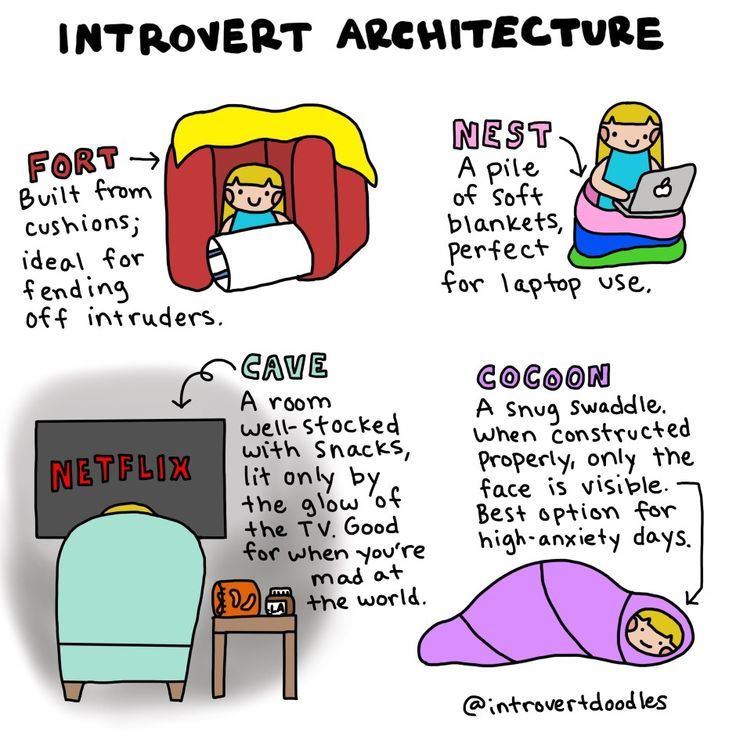
- Introversion Is Not A Weakness, So Why Are You Treating It Like One?: Workplace expert Heather R. Huhman discusses introverts in the workplace in this article.
- Introversion - Psychology Today: This page on Psychology Today's website features articles about introverts.
- Introvert - Udemy: This page includes classes from Udemy about introversion.
- Quiet: The Power of Introverts with Susan Cain: Although this podcast is geared toward the parents of introverted children, college students can learn a lot about introversion by listening to it. Topics covered include the neuroscience of introversion, self-esteem, and how participation requirements affect introverts in the classroom.
-
The Creative Introvert Podcast: Introverts who enjoy creative activities can find out about how to increase their confidence, battle burnout, and stop procrastinating through this podcast.
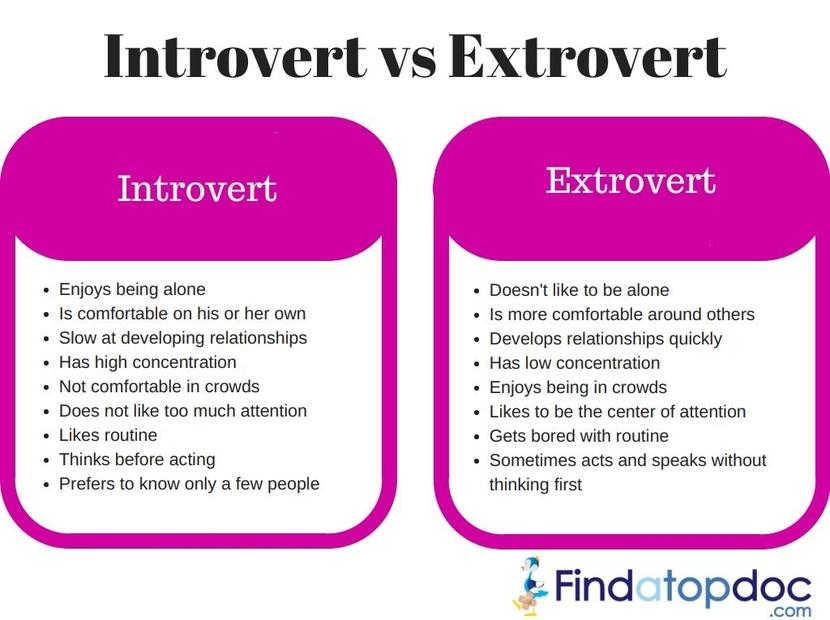
- The Intronaut - A Podcast for Introverts: The Intronaut provides encouragement to introverts by discussing topics like self-awareness, fear of public speaking, and learning styles.
- The Introvert, Dear Podcast: In this podcast, hosts Jenn Granneman and Bo Miller provide advice to introverts. Some topics include romantic relationships, self-care, creativity, and travel.
- The power of introverts: This TEDTalk video discusses the challenges introverts face and why they should be celebrated.
- The Spectrum From Introversion to Extroversion: This article explains introversion and extroversion according to the Myers-Briggs Personality Inventory.
- What Kind of Introvert Are You?: Readers can learn about the different types of introverts by reading this article.
-
Will the Real Introverts Please Stand Up?: In this article, Scientific American explores the signs of introversion and the difference between introverts and extroverts.

How to Thrive in College When You’re an Introvert
College isn’t made for extroverts. College is what YOU make of it.
To an introvert, attending college can feel similar to how Marlin, Nemo’s clownfish dad, felt leaving his anemone every day in the popular Disney movie. You leave your comfortable, safe home and travel to a big ocean of people where you’re expected to generate stimulating conversation. Talking to people isn’t hard, per se, but sometimes introverts don’t have the energy to introduce themselves to five new classmates in a row. There’s an ever-constant expectation to be social, and for an introvert, those expectations can feel like a twenty-pound weight on your shoulders:
There’s that woman from my class… I should say hi. It would be rude not to talk to her, wouldn’t it? I’ve passed ten groups of friends chatting up a storm, should I have a group of friends to talk to?
Even if you’re moving to online classes, as many universities are this fall, there’s still pressure to have a fantastic social life.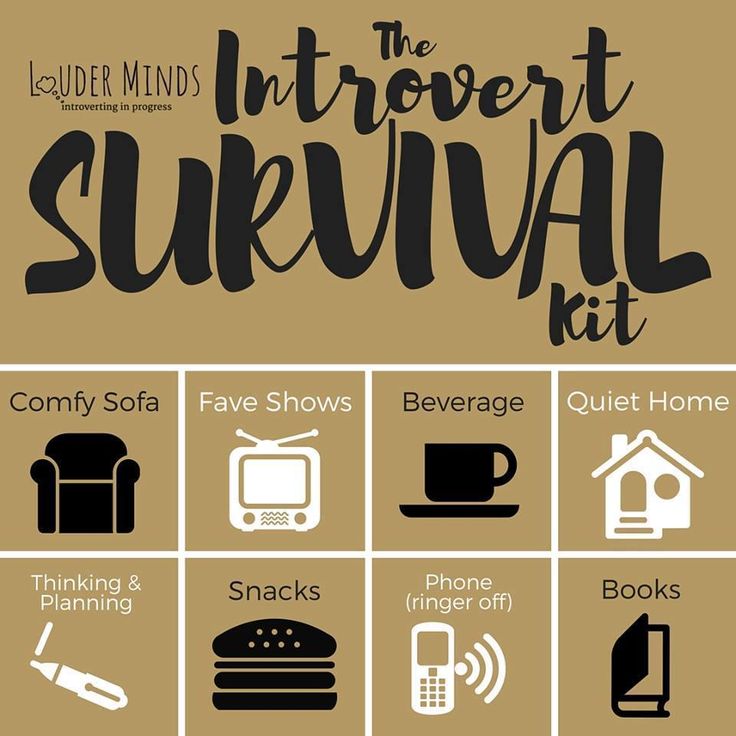 How do you balance the desire to stay home all day (using online classes as an excuse) and actually having a healthy social life outside your room?
How do you balance the desire to stay home all day (using online classes as an excuse) and actually having a healthy social life outside your room?
The fact that a lot of classes are going online due to COVID-19 is bringing joy to introverts around the world. No crowds, no problem, right? Well, even in the comfort of your own home, balancing school, roommates, and expectations can still be a challenge. As a fourth-year psychology student and a card-carrying introvert, here is my advice for both in-person and online school, and how to thrive in college as an introvert.
1. Always have headphones.
In-person: Headphones are a must for surviving college as an introvert. Even if I wasn’t talking to anyone, the sound of a dozen conversations around me would grow to be overwhelming after spending hours in that noisy environment. As introverts, we generally need calm and quiet to focus — and feel at our best. This is when you can find a deserted corner, pull out your headphones, and rock out to some soothing Hawaiian music… or whatever’s on your favorite playlist.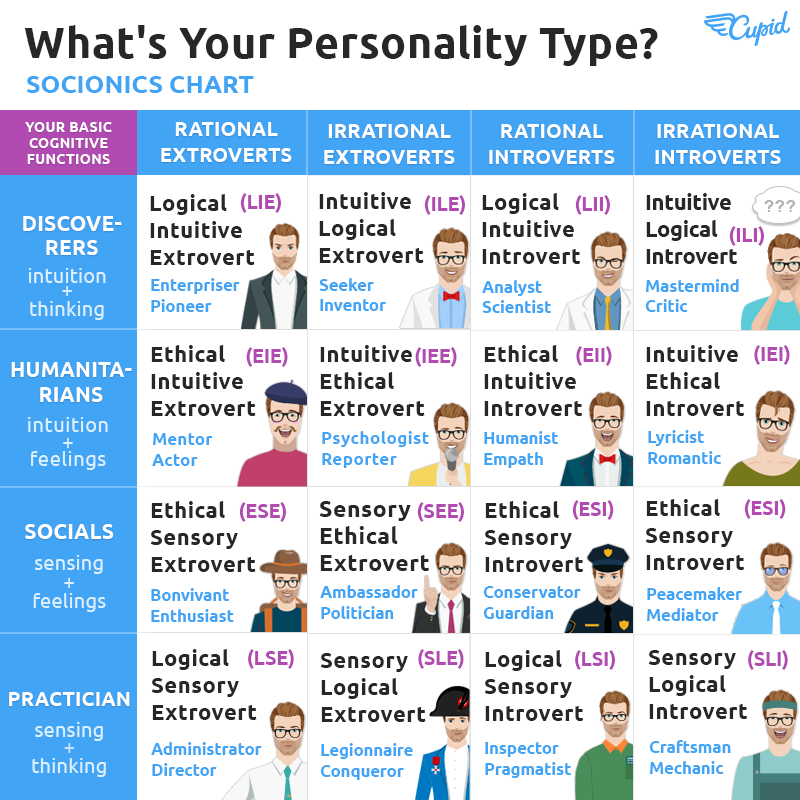
Online: COVID-19 has brought a lot of people home, meaning your roommates/family could possibly be in the house with you all day. This means loud music, dishes dropping in the kitchen, overheard conversations happening in other rooms, and many, many, other distractions — definitely not ideal for introverts. So invest in a quality pair of headphones to drown out the world while you work on your essay.
2. To eat alone or not to eat alone… that is the question.
In-person: Recognize that it’s okay to eat alone. To some introverts, high school was filled with panic-inducing moments at lunchtime when they looked for a table to sit at because it’s “not cool” to sit alone. But you have to remember that this is not high school. In college, people couldn’t CARE LESS if you sit alone. So grab your headphones, set up your laptop, and put on some Netflix. Use lunch as your introvert recharge time.
Online: If you’re online, you will be spending the morning on your laptop in your room. Even if you’re in another area of the house, you won’t be talking to anyone. So, at lunch, take a different approach: Use it as a social outlet. Eat when your roommates are eating, or visit your mom for a lunch break. Even introverts need to meaningfully fill that social bar!
Even if you’re in another area of the house, you won’t be talking to anyone. So, at lunch, take a different approach: Use it as a social outlet. Eat when your roommates are eating, or visit your mom for a lunch break. Even introverts need to meaningfully fill that social bar!
3. Schedule alone time.
In-person: Personally, I live by a schedule, especially at college. So instead of just scheduling my classes, I schedule alone time. For people who can’t easily go home between classes, it’s good to know when you can do some relaxing. So find out where the couches are in the building(s) and head over there between classes when it’s not your study time.
Online: You may be thinking, I’m spending all day alone. Why do I still need to schedule alone time? For introverts taking onlines classes, you may not need to schedule alone time, but schedule fun time. A whole day of reading textbook material can be exhausting, so figure out when you can sit back, relax, and watch You’ve Got Mail. Or another movie you love.
Or another movie you love.
4. Find a designated seat in the library.
In-person: You probably can’t reserve a specific seat in the library, but what you can do is scout out prospective seats beforehand. Have you ever been walking through a full classroom or a library and started to panic because you didn’t know where to sit? Head to campus in the morning and walk around your library. That way, you will look like you know where you’re going every time because you will know.
Online: If you’re online, the library may mean a random trip to your university once a month, or a weekly trip to your favorite cafe. The same rules apply. Trying to find a seat anywhere is nerve-wracking for an introvert because you feel as if the whole room is looking at you, wondering where you’re going to sit — and introverts hate all that attention! When you don’t know where to sit, you have a desire to turn invisible until you find a place so people will stop staring. So take the same advice from above and apply it to your public study spot.
So take the same advice from above and apply it to your public study spot.
5. Always bring a good book.
In-person: Some days will be harder than others. Maybe you had a big weekend full of socializing, and you’re still drained by the time Monday comes but you can’t risk missing classes. Take a book that engrosses you — something you read just for fun — to take your mind off your studies and the people surrounding you.
Online: If you’re online, it will be inevitable that you won’t be socializing much due to health reasons. I find that a good book is a great way to trick your brain into thinking you’re filling your social bar when you’re really reading about fictional people filling their social needs. I’m not saying to rely on fictional worlds as your only source of socializing, but it definitely helps brighten your mood when you can’t hang out with your favorite person.
Join the introvert revolution.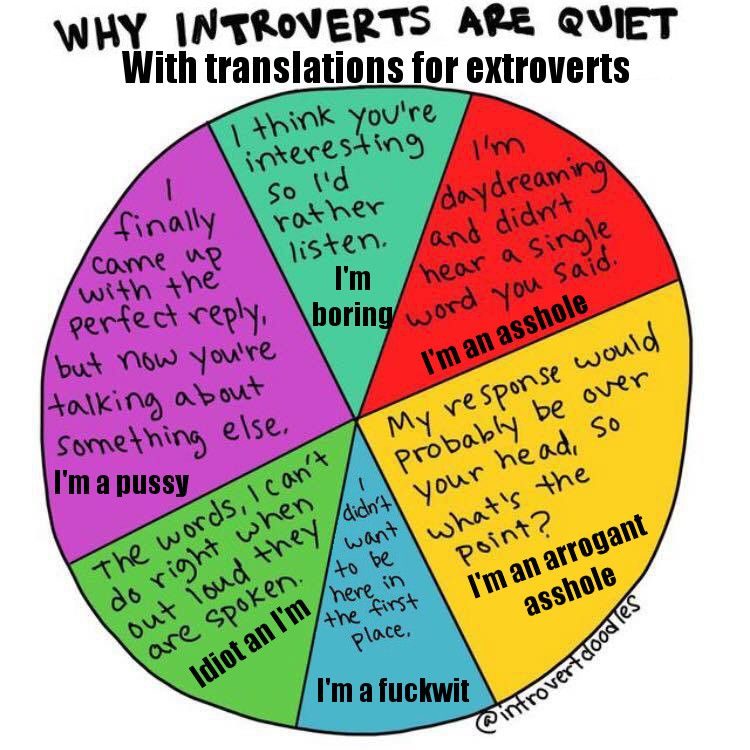 Subscribe to our newsletter and you’ll get one email, every Friday, of our best articles. Subscribe here.
Subscribe to our newsletter and you’ll get one email, every Friday, of our best articles. Subscribe here.
6. Create a long bedtime/morning routine.
This applies to both in-person and online university students. Whether you’re a night owl or a morning person, be sure to create a long morning or bedtime routine. As a night owl, having an hour-long bedtime routine after a busy day is the perfect way for me to unwind and recharge. Both the morning and evening are naturally quiet — the whole world around you is subdued and calm. There is less traffic, people talk in quieter voices, and loud stimuli is unwelcome and even frowned upon (no one mows the lawn at 10 p.m. or 6 a.m.). Take advantage of this and use it as your quiet time to prepare or recharge.
7. Occasionally step out of your comfort zone.
This also applies to both groups. Although it’s great to embrace what you’re comfortable with and create a routine around that, it’s also important for introverts to step out of their social comfort zones once in a while. Try introducing yourself to someone new, joining a club, or volunteering at an organization. When I had to choose a partner in my third-year English class, instead of choosing the safe option (looking to the woman beside me that I had previously borrowed notes from), I decided to look the other way and ask the cute guy sitting next to me to be partners. Nothing ever came of it, but it made my day that much better because I was able to talk to my crush “from afar” for half an hour. The great thing about being an introvert is you don’t need much to fill your “out of the box” meter.
Try introducing yourself to someone new, joining a club, or volunteering at an organization. When I had to choose a partner in my third-year English class, instead of choosing the safe option (looking to the woman beside me that I had previously borrowed notes from), I decided to look the other way and ask the cute guy sitting next to me to be partners. Nothing ever came of it, but it made my day that much better because I was able to talk to my crush “from afar” for half an hour. The great thing about being an introvert is you don’t need much to fill your “out of the box” meter.
8. Realize that introversion is a strength in college!
In this article, Beverly Garside points out that even though extroverts seem to be the best fit for college, introverts like her can do very well academically because we don’t have a constant need to socialize. We are perfectly content studying in our rooms while extroverts can’t bear to miss a social event. Whenever you feel the expectations of others weighing on you, don’t think about how many friends others have compared to you.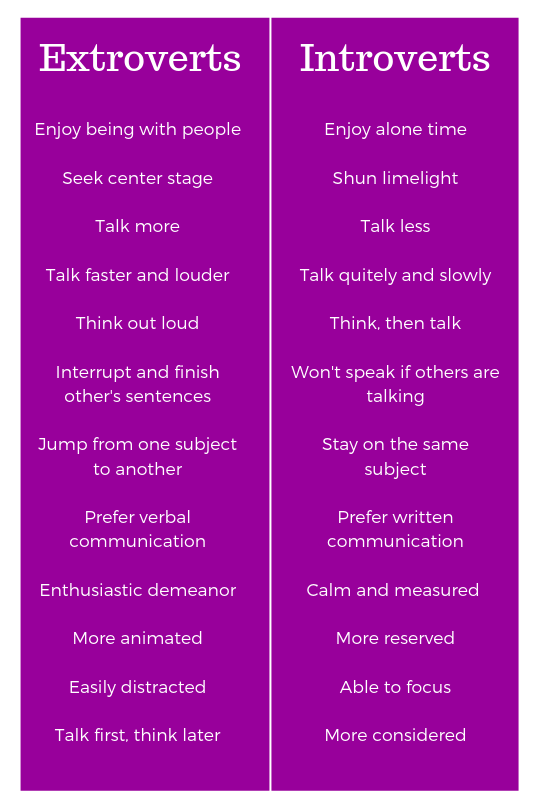 Put your energy into the few close friends you do have — all an introvert really needs, anyway — and focus on your strengths.
Put your energy into the few close friends you do have — all an introvert really needs, anyway — and focus on your strengths.
College isn’t made for extroverts. College is what YOU make of it. If you build strong habits and stay focused on your strengths as an introvert, you won’t just survive… you’ll thrive.
You might like:
- 5 Reasons an Introvert Isn’t Talking
- Teachers, Quit Telling Introverts They Should Participate More
- Why Life Is Better as an Introvert When You Embrace Conflict
How to make friends for an introvert in college | 2022
How to make friends for an introvert in college: It can be very difficult for introverts to make friends, especially in college. According to a recent survey of teenagers, the biggest barrier to developing friends was a lack of trust.
That is, it was harder for people to trust someone new and fully invest in them as a friend when they were younger than they are now.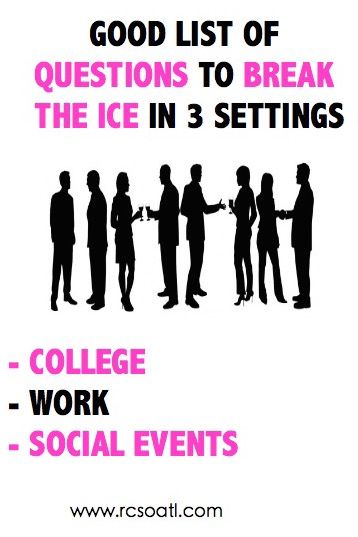
Making friends in college can be tricky, especially if you're an introvert. Sometimes college students have to deal with overcrowded classrooms and cafeterias, roommates they don't know, and an onslaught of social expectations they don't like.
This begs the question: How can an introvert make friends in college? It may seem like a war at first, but as you continue to practice the advice I'm going to list in this article, you'll get better.
Content
Benefits of making friends as an introvert in college:
Client support:
Academic growth, learning, and self-esteem can be influenced by positive peer interactions.
Good college buddies can help you improve your social life, enrich your student or graduate experience, and open doors to many rewarding careers.
Companionship:
Friendship prevents isolation and loneliness, and also provides an opportunity to communicate with others. Increase your sense of belonging and purpose with the help of friends.
Increase your sense of belonging and purpose with the help of friends.
Reduce stress and increase pleasure with these simple strategies. Even though they can serve as a source of inspiration and encouragement, friends can also demoralize children intellectually.
The most important thing is to be aware of the significance of these social networks - not only the role of friends, but also their connections with each other.
A Better Lifestyle:
Adopting a healthier lifestyle and faster resolution of health problems is made possible by the support and friendship of close friends.
The value of friendship cannot be overestimated. One study found that spending time with positive people can actually improve your outlook.
The art of making friends in college:
If you find it difficult to make friends in college, you are not alone. Adjusting to a new environment can be difficult if you've ever left home for school.
Introduce yourself to everyone you meet in your new environment. Your efforts will be appreciated by others. You never know what you'll discover in such casual conversations that can lead to fun and unforgettable moments of a lifetime.
Although you will appreciate the support of your college friends, remember to be their friend. They will have bad days, feel lonely or get irritated in class. There is a chance you won't get an answer.
How to make friends for an introvert in college:
Decide to meet new people:
It's important to make a decision. Don't wait for the door to open to decide whether or not to go out and meet someone. Instead, schedule it for the whole day.
You must plan what you want to do, what you really want to do. If you're having a hard time making friends in college or finding people to hang out with after class, don't be too hard on yourself.
You may feel nervous starting a conversation, but remember that most people are friendly and will not turn you down if you ask them to be friends.
Join the Interest Group:
In addition, there are a number of school-sponsored events throughout the year, many of which have a social dimension. This is a great way to meet new people without losing your temper to make contact on your own.
You can also learn more about other people's interests by attending these events. Today, people are more interested in finding out who they are and what they are passionate about, so it's easier to find common ground.
Use this advice if you really want to make friends with an introvert in college.
Spend time on campus during breaks:
In my course there were often long gaps between lectures when we could relax. Students were more likely to hang out at the campus cafe or just wander between classes than go home.
It often takes a couple of years of taking classes with someone before you realize they have a name. No one should feel bad if they don't know everyone in their major or everyone in their college dorm level.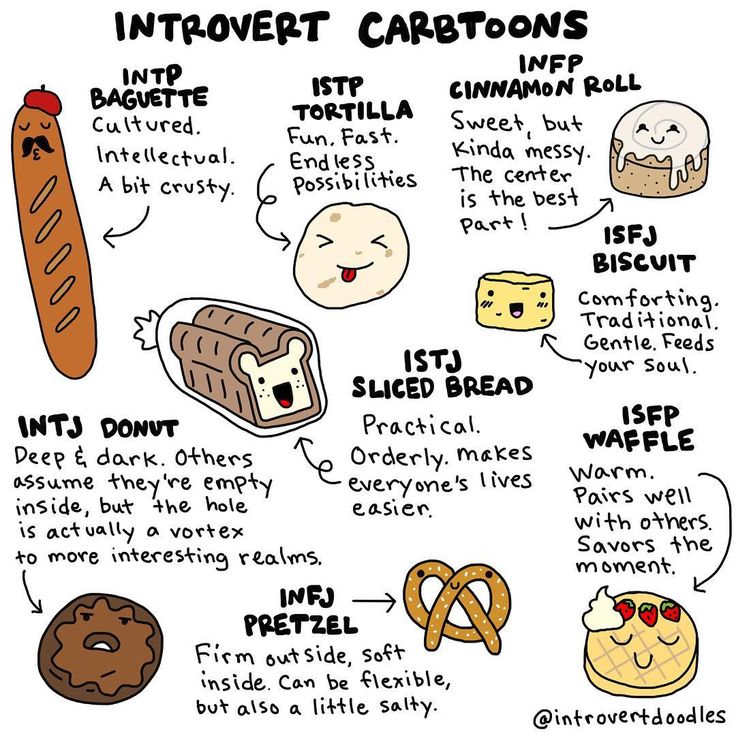
The fact that you are experiencing this does not mean that you are doing something wrong. When it comes to meeting new people, it doesn't matter if you meet a lot of people or no one at all.
Get to know at least one true friend:
At a time when almost everything is done in groups, making friends in college can be tricky.
Introverts thrive in small groups and in one-on-one situations. Instead of trying to win everyone over, focus on winning at least one true fan.
For an introvert, the pursuit of lasting friendship is more important than the pursuit of popularity than the pursuit of petty social status.
Get the most out of your hostel:
Dormitories are designed to bring students closer together, which is why they are so popular. Start a few chats and see where the path takes you.
A great way to meet people in college is through a roommate. Remain kind and considerate to their surroundings, always being a good neighbor to them.
When you are surrounded by the same people every day, it is much easier to build long-term relationships. If you are friendly, you will get along well with everyone.
Remember that making friends does not mean finding them. It's all about putting in the effort to be nice to everyone you meet.
Join the team:
Sports have a way of making strangers feel like family. You make social commitments when you join a team sport. Every day you will encounter the same group of people.
As a result, you may connect better with some people than with others.
By the way, you don't have to be an athlete to participate in this activity. Once again, Facebook groups help you find informal sports clubs to join.
Take inventory of people you know and people you already know:
You don't have to go to parties and events to make new friends if you don't want to. You can start with people you already know and are familiar with.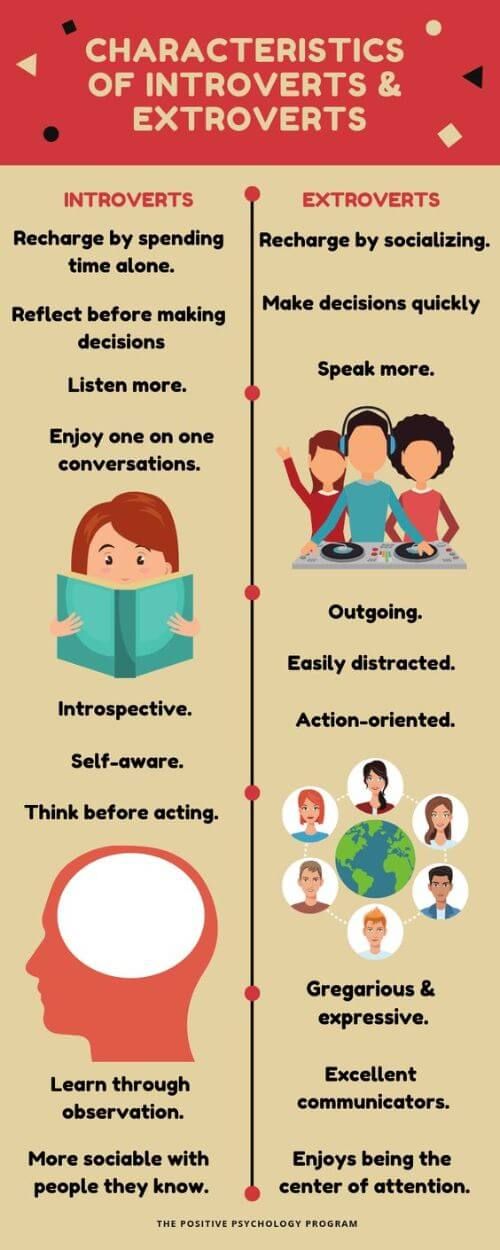
There may be a few that you admire, like or are interested in, and all you have to do is contact them and see how they go.
This is one of the most important tips on how to make friends for an introvert in college and how introverts make friends.
Although it may be difficult at first, if you try it you will find that it is very simple.
Be yourself:
Meeting new people and trying to make friends can make you feel like you have to be your best and please everyone so that everyone you meet likes you. The truth is that it can be exhausting and exhausting.
If you really want to build a real, meaningful, and lasting friendship, you have to be brave enough to be real.
Don't be ashamed of being imperfect or being rejected, because no one is perfect and everyone has experienced rejection at some point in their lives.
Don't change yourself because you want to make new friends. Be yourself and you will find that people really love you. This is the second important step in How to Make Friends for an Introvert in College.
This is the second important step in How to Make Friends for an Introvert in College.
Take the first step:
In most cases, introverts wait for others to make a move and come to them. They doubt themselves a lot and are always afraid of rejection, so they prefer to just stay in their space and wait for someone to come up and reach out to them.
The process of making friends can be difficult and tiring, and even the most confident person can doubt themselves, but that doesn't mean you have to give up. It's not magic and it just doesn't happen.
You must take the first step out of your comfort zone. When you see someone you like, admire, and would like to have as a friend, talk to that person.
Check Your Feelings
The most important tip in " How to Make Friends for an Introvert in College " is how you feel. It's a good idea to regularly check your feelings about being friends with someone.
Check how you feel After spending time with this person, how you feel while spending time with this person, and whether you feel respected and supported by this person.This will help you not to go astray and not get lost in search of friends.0005
If you find your friendship with someone exhausting and tiring, stop or step back from such friendships and relationships. This will free you from a lot of weight and burden.
Be friendly:
When you go about your daily business and would like to talk, use greeting gestures to show people that you are open to talking. You can smile, wave, or even say hello.
They may not want to talk now, but you've made contact and given the impression that you're open and they'll want to next time.
Join interest groups:
When trying to befriend an introvert, it's normal to worry that they might be different from you and have nothing in common with you.
Well, you can find kindred spirits. All you have to do is find groups and communities doing what you love.
All you have to do is find groups and communities doing what you love.
This proved to be an effective way to make real friends. This creates a common ground and a kind of connection between you and the people in these groups.
Even if you don't have these sites and opportunities in your area or city, you can find them on social media.
Be patient:
Building lasting, sincere, and meaningful friendships requires a lot of patience, because these kinds of friendships take time to develop. It will be awkward at first, but it will pass. Don't stress too much. Relax and you'll be glad you did.
Making friends as an introvert can be exhausting, but that doesn't mean you should stop trying. Do your best without trying to impress anyone.
You may not be friends with everyone you associate or talk with. Move on, don't feel bad. You can't be friends with everyone you meet.
Check Out: Jobs for 15 year olds that make big money ($$$)
Frequently asked questions about how introverts make friends in college:
How do introverts make friends at university?
Find something you like or are interested in and commit to it. This will help you make friends in college.
This will help you make friends in college.
Is it difficult for an introvert to make friends?
It can be difficult for introverts to make new acquaintances because it takes so much energy to get to know a new person. Introverts, on the other hand, don't need a big social network. Although they know many people and have many acquaintances, they prefer a few close friends.
How do you communicate in college?
Make an appointment with old friends you haven't seen in a while. Take a friend to the movies, to a baseball game, to a concert, or any other event. Consider throwing a party and inviting all your friends. There aren't many hours in the day to socialize, but don't let that stop you from accepting more invitations.
Why do introverts lose friends?
It can be difficult to maintain eye contact if your energy levels fluctuate. Under pressure, many introverts withdraw even more into themselves. Emotional balance is restored by withdrawing into oneself, not by contact with others.
Under pressure, many introverts withdraw even more into themselves. Emotional balance is restored by withdrawing into oneself, not by contact with others.
Closing Tips:
Being an introvert doesn't mean you're a different person, it means you're unique in your own way. Thus, you can be friendly and attract people to you if you follow the steps above.
The most important step in How to Make Friends for an Introvert is to look around and open your heart of friendship to the people around you.
You then follow the steps that follow.
Share this information.
Editor's note:
- How old do you have to be to go to college?
- Sophomore? What does this mean?
- Prom at home (mandatory rules)
- KBIT test (meaning, breakdown, KBIT-1 and KBIT-2, benefits)
How to communicate with introverts – GBPOU RS (Yakutia) "Vilyui Vocational Pedagogical College named after N.
 G. Chernyshevsky"
G. Chernyshevsky" Very often we receive letters with a variety of questions concerning relationships between people. And one of the main general recommendations of our psychologists at a psychological consultation is a frank conversation.
But what if the conversation does not come out? If you need to talk and in response - silence, if your interlocutor does not want to talk? And constantly! You can seek more detailed advice for psychological counseling, or just read this article.
There is a special type of people. A sort of chronic silent. Scientific language - introverts.
A typical introvert is a calm, shy, even reserved person. The personal qualities of an introvert are interpreted in different ways, but one thing unites them - these people do not like and do not know how to talk, in any case, to talk in the way that relatives require them to.
But a silent person - an introvert - is not a diagnosis! Given some features, you can discover the secret - how to communicate with an introvert?
It is important to understand that you are very different, you think differently. The same thing can have completely different meanings for you and for the “silent person”. Their personal space should not be invaded unexpectedly. Probably, the main difficulties for these people arise precisely in order to quickly find an answer, therefore, in a conversation with them, one cannot demand an immediate reaction. What for you is a way to reduce stress, let off steam, for them, on the contrary, it may be very difficult. After a short, serious conversation, such people may feel exhausted. Your perception is different, and you need to ask if you understand what is said correctly. But very carefully - if you are suspected of being unable to understand - write wasted. Better yet, consult with a psychologist first.
The same thing can have completely different meanings for you and for the “silent person”. Their personal space should not be invaded unexpectedly. Probably, the main difficulties for these people arise precisely in order to quickly find an answer, therefore, in a conversation with them, one cannot demand an immediate reaction. What for you is a way to reduce stress, let off steam, for them, on the contrary, it may be very difficult. After a short, serious conversation, such people may feel exhausted. Your perception is different, and you need to ask if you understand what is said correctly. But very carefully - if you are suspected of being unable to understand - write wasted. Better yet, consult with a psychologist first.
Often, people who are reserved and uncommunicative simply take longer to establish trust. To begin with, it is especially important to give them the opportunity to talk - no matter what, about something that is interesting and important to them. Do not interrupt, do not react emotionally (it's scary).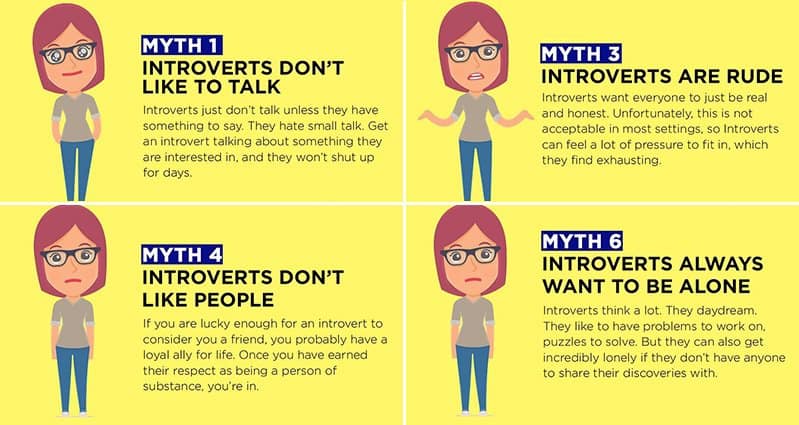 Active listening means giving occasional signals that you are listening and asking questions to allow the story to continue. It will have to be expressed clearly and specifically, very clearly. In order not to confuse. And don't get confused.
Active listening means giving occasional signals that you are listening and asking questions to allow the story to continue. It will have to be expressed clearly and specifically, very clearly. In order not to confuse. And don't get confused.
A common feature of introverts is the secrecy that so often offends loved ones. In this case, it is important to understand that you are not being deceived, you are simply not being told the truth. The same sometimes introverts can lie. But it's more of a childish method of ripping pages out of a diary and forging grades to avoid a serious conversation.
Interestingly, there is a completely physiological reason for this behavior - some people have a constantly high level of electrical activity of the brain, therefore, a higher excitation of the cortex than extroverts, which is why they learn from early childhood to limit their communication in order to avoid the extreme point arousal level. A great way to transfer part of the communication into writing is really easier.
Also, such people may have a strong fear that if they “take off the mask” and start talking, they will become more vulnerable and manageable, such fears should be dealt with in consultations with a psychologist, and not left to chance. If you have problems communicating with a closed person, it is better to contact a psychologist for advice so as not to make mistakes.
Reclusion is not always an innate feature, often it is the consequences of a mental trauma, and in this case it is necessary to be even more careful, even more patient. The best solution to the problem of isolation is psychological counseling. You can ask a psychologist a question and get a recommendation on how to communicate with an introvert in more detail. An introvert is not a sentence! An introvert can be an excellent scientist, researcher, observer, writer, or self-employed person. As well as a faithful and loving spouse, a talented specialist. If you find in yourself the features of an introvert, and this bothers you, do not despair, you can very effectively learn to live in harmony with yourself using psychological methods.

